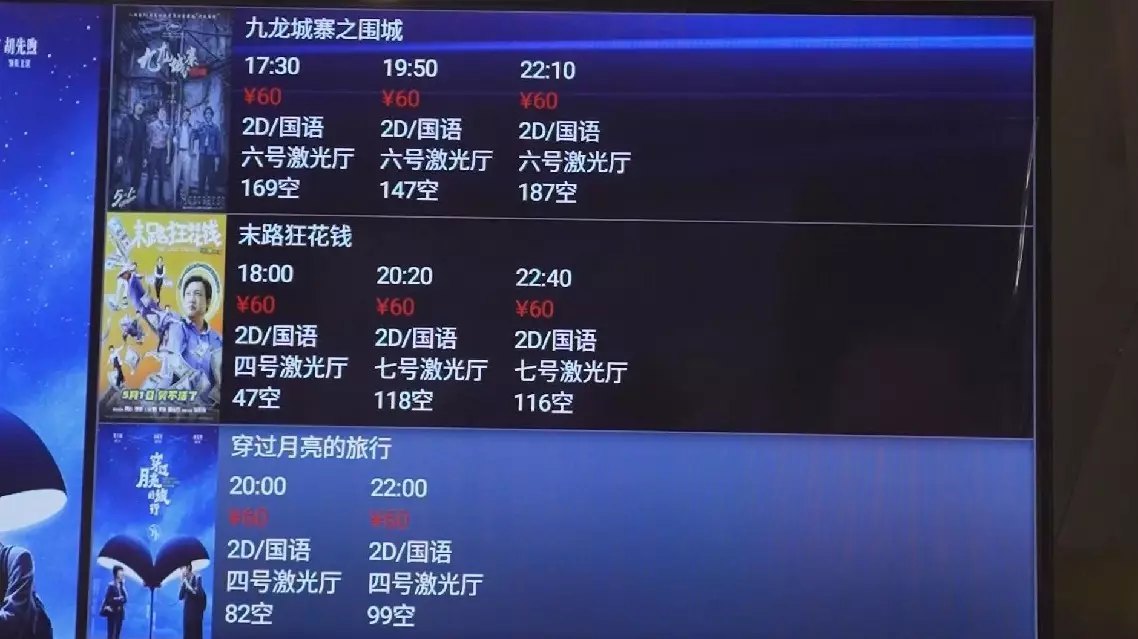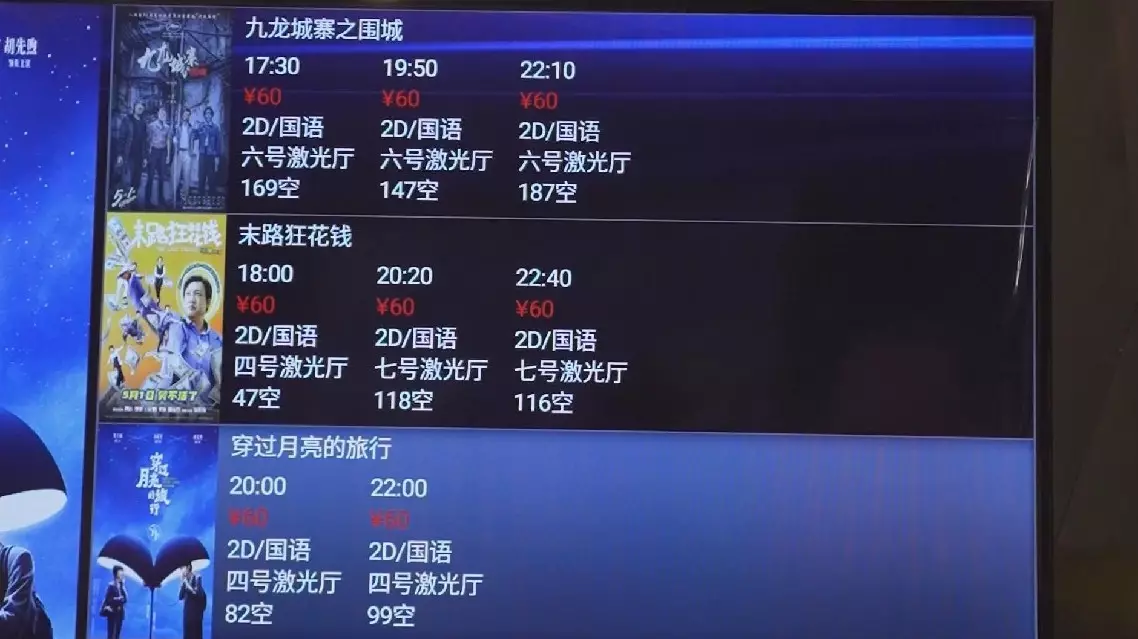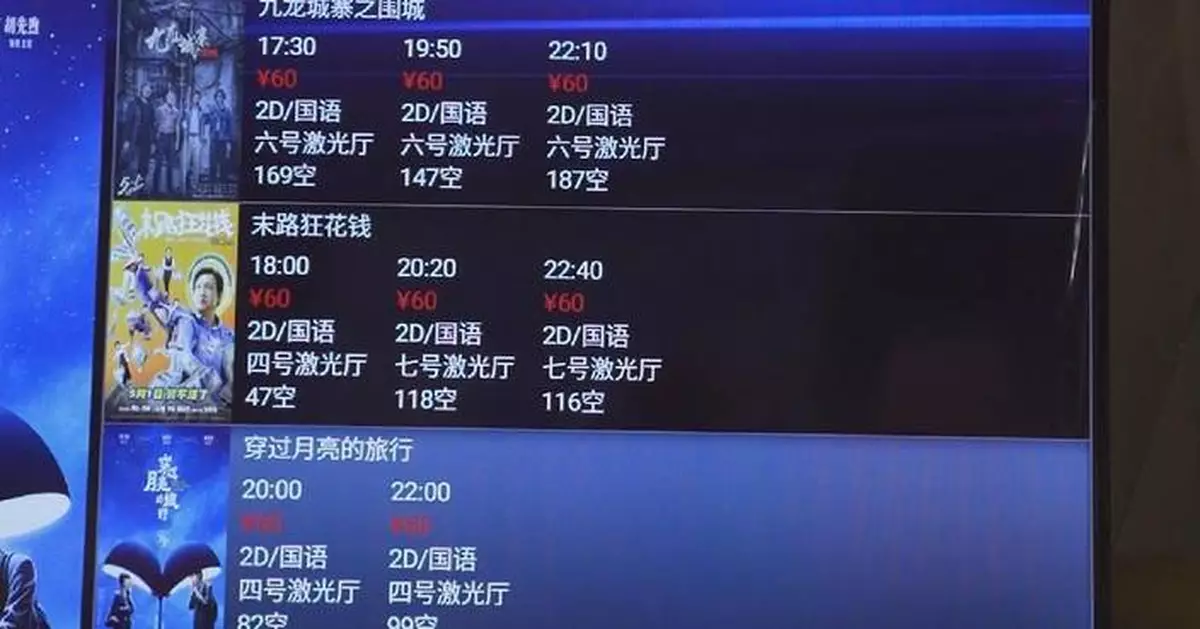China's box office earnings in the first half of 2024 surpassed 23.9 billion yuan (about 3.2 billion U.S. dollars), data from the China Movie Data Information Network showed Sunday.
Topping the chart was domestic comedy-drama "YOLO", which tells the story of an unemployed woman in her 30s who still lives with her parents until she meets a boxing coach who may change her life. The film raked in 3.46 billion yuan in box office earnings.
Other hits included comedy-dramas "Pegasus 2" and "Article 20", which pocketed 3.39 billion yuan and 2.45 billion yuan, respectively.
The country's movie industry kicked off the new year with a record high revenue of approximately 1.53 billion yuan (about 216 million U.S. dollars) for the three-day New Year's Day holiday. Box office revenue during the eight-day Spring Festival holiday exceeded 8 billion yuan (about 1.13 billion U.S. dollars), with domestic comedy movies accounting for over 97 percent of the total earnings.
The box office revenue for the summer movie season, which runs from June 1 to August 31, had reached 2 billion yuan (about 275 million U.S. dollars) by Saturday.
More Chinese productions are slated to hit the big screen this summer. Reports show that 88 movies have already been rounded up as of July 19.

China's box office hits 23.9 billion yuan in H1

China's box office hits 23.9 billion yuan in H1
Attractions across China are embracing a tourist boom during the five-day May Day holiday season beginning on Thursday.
In south China's Guangdong Province, the Hong Kong-Zhuhai-Macao Bridge, a mega bridge connecting Guangdong's Zhuhai City with neighboring Hong Kong and Macao, is one of the most popular tourist destinations.
The total number of visits of the bridge during the holiday has exceeded 6,800, about 50 percent more than that on normal days.
"I am indeed feeling very proud [of this mega project], a big thumbs-up for our great country!" said a tourist surnamed Ke.
In the Tianmen Mountain scenic area in Zhangjiajie, central China's Hunan Province, performances featuring local folk customs are amazing tourists from home and abroad.
"I think it's really traditional in China, the costumes and the dance. We really like it," said tourist Julie from France.
"I love the performance. I felt like it was very immersive, and with the view, it's crazy. I'll recommend everyone thinking of coming here for sure," said tourist Duarte from Portugal.
In northwest China's Gansu Province, the famous Mogao Grottoes are also see a peak of visits during the holiday, as the tickets, which are limited to 6,000 per day, would all sell out well in advance.
Built between the 4th and 14th centuries, the Mogao Grottoes are home to a vast collection of Buddhist artworks, with more than 2,000 colored sculptures and 45,000 square meters of murals located in 735 caves, carved along the cliffs by ancient worshipers.
In northwest China's Xinjiang Uygur Autonomous Region, the Tianchi Lake in the Tianshan Mountains, more than 1,900 meters above sea level, had the ice floes on it thawed just before the holiday, offering tourists a breathtaking view.
"This is my first time to visit the lake. The view is shockingly beautiful when you see it in person!" said tourist Chen Yanru from northeast China's Liaoning Province.
Xinjiang's Manas county is a famous destination for self-driving tours because of the region's diverse natural landscapes, such as yardangs, the Danxia landform, river valleys, canyons, alpine meadows and forests.
"It's a very worthwhile trip for the holiday. I am amazed by the picturesque scenery of Xinjiang," said tourist Zhou Chenchong from Shanghai.

Attractions across China embrace May Day holiday tourism boom





















































